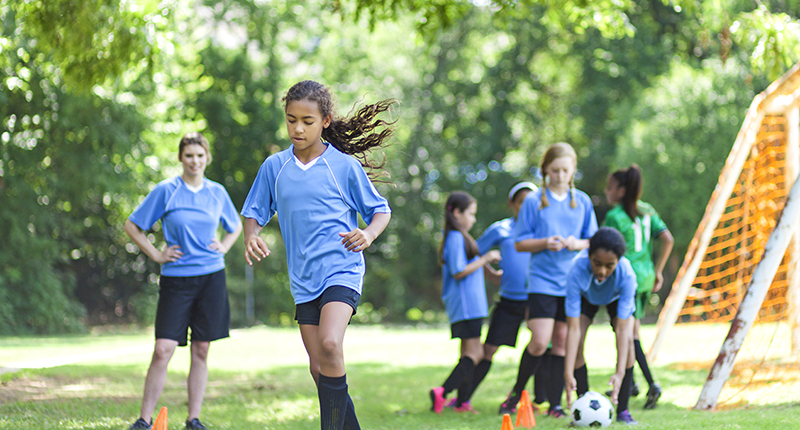5 Key Benefits of Long-Term Development in Sport and Physical Activity: Why It Matters for Children

In the evolving world of sport and physical activity, the Long-Term Development in Sport and Physical Activity (LTD) framework developed by Sport for Life represents a strategic approach designed to foster lifelong engagement in sport and physical activity. This framework is especially crucial for community leaders and parents who play pivotal roles in shaping the sport experiences of young participants. Here, we explore five key benefits of LTD and why it is instrumental in your child’s athletic and personal development.
1. Holistic Development
The LTD framework emphasizes the holistic development of participants. Unlike traditional models that focus primarily on physical skills and high performance, LTD integrates the development of physical, mental, social, and sport-specific capabilities. This approach ensures that children grow not only as participants but also as well-rounded individuals. For instance, the Learn to Train stage of LTD focuses on teaching fundamental movement skills while also encouraging cognitive understanding of the sport, which is crucial for developing decision-making skills and sport intelligence.
2. Prevention of Burnout and Overtraining
One of the fundamental principles of LTD is to match training and competition to the developmental age of the participants, which helps in preventing burnout and overtraining. This is particularly important as children grow, as their engagement should be based on enjoyment and skill development rather than the pressure of early specialization. The LTD framework’s stage-based approach ensures that young participants are not pushed too hard too early, which can lead to physical and psychological burnout. This is supported by research from Wiersma (2000), which discusses the risks associated with sports specialization among young athletes.
3. Increased Retention in Sport
By focusing on enjoyment and appropriate developmental challenges, LTD helps increase retention rates in sport. Young participants who enjoy their sport experience and feel challenged at a suitable level are more likely to continue participating. This is crucial in an era where many young people drop out of sport due to negative experiences or undue pressure. For example, the Active Start and FUNdamentals stages prioritize fun and fundamental movement skills acquisition, which are key to fostering a lifelong love for sport. A study by Reillo et al. (2010) shows that early physical activity correlates with continued physical activity later in life, emphasizing the importance of these stages.
4. Better Long-Term Performance Outcomes
Participants trained under the LTD framework tend to achieve better long-term performance outcomes. This is because the framework provides a foundation of broad-based skills before specializing, which is critical for peak performance at older ages. Research by Côté and Hancock (2016) suggests that diverse sports experiences in childhood lead to greater elite performance later. This underscores the advantage of multisport participation at younger ages, leading to better skill development, fewer injuries, and a greater chance of sporting success in the long term.
5. Enhanced Social Integration and Teamwork Skills
One of the other important benefits of LTD is its ability to enhance social integration and teamwork skills among children. By engaging in sports that require cooperation and communication, children learn essential social skills such as empathy, leadership, and conflict resolution. These experiences contribute to their overall social development and help them build meaningful relationships with peers. The LTD framework, through its various stages, ensures that these social skills are developed in tandem with physical and cognitive skills, providing a more comprehensive growth environment for children. This aspect of development is crucial as it helps young participants not only excel in sports but also succeed in group activities and team settings throughout their lives, promoting a sense of community and belonging.
Conclusion
The LTD framework is more than just a pathway; it is a blueprint for fostering a healthy, active lifestyle that begins in childhood and extends through all stages of life. For leaders in sport organizations and parents alike, understanding and implementing the principles of LTD can make a profound difference in the lives of young participants, transforming their sports experience into a cornerstone of lifelong health and personal achievement.
By embracing these principles, community sport leaders and parents can ensure that sport serve as a positive force in the development of children, providing them with the tools they need to succeed both on and off the field. For more detailed information on implementing LTD in your community or sports organization, visit Sport for Life’s official LTD resource page.
Courses
To effectively implement and benefit from the principles of LTD, several courses and certifications are offered by Sport for Life. Individuals who become certified gain a comprehensive understanding of the LTD framework. They will become familiar with the primary objectives of each stage of development. By acquiring this knowledge, they will be equipped to create engaging, safe, positive, and developmentally appropriate sport and physical literacy experiences for individuals of all ages and abilities.
Quality Sport Leader – Level 1 Certification
Including:
- eLearning – Introduction to Long-Term Development in Sport and Physical Activity
- Workshop – Quality Sport for Communities and Clubs
References
- Myer, G. D., et al. (2015). Specialization can be detrimental to long-term achievement and athletic excellence.
- Wiersma, L. D. (2000). Risks associated with sports specialization among young athletes.
- Reillo, M., et al. (2010). Physical activity in the early years correlates with physical activity as one age.
- Lloyd, M., et al. (2014). Motor skill proficiency at 6 years of age is associated with physical activity level at 26.
- DiSanti, J. S., & Erickson, K. (2019). Long-term impacts of specializing in a single sport. [Journal/Source].
- Côté, J., & Hancock, D. J. (2016). The benefits of diverse sports experiences in childhood for future elite performance.

